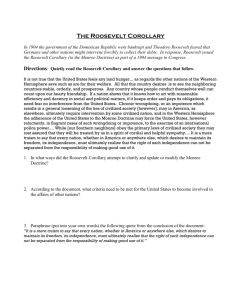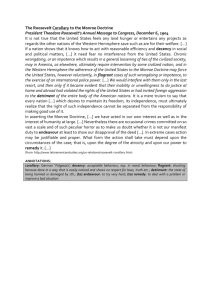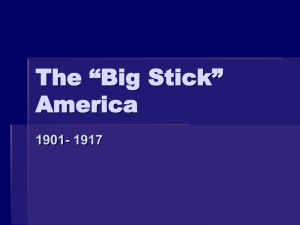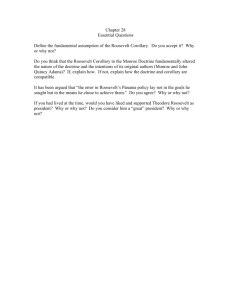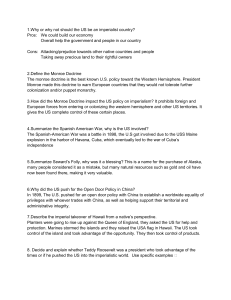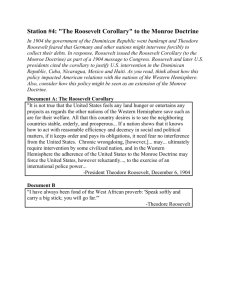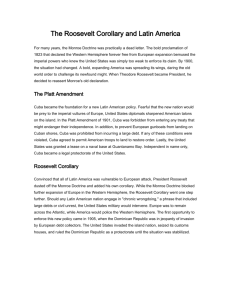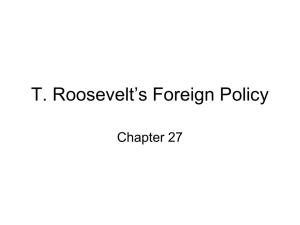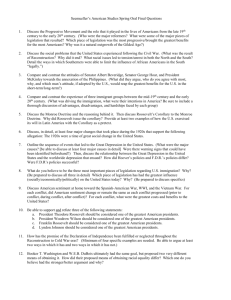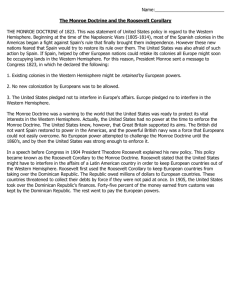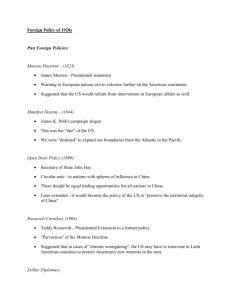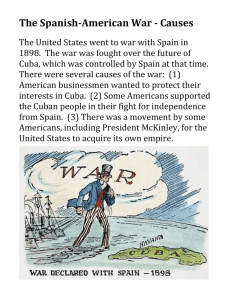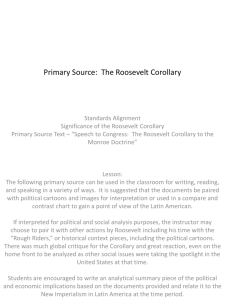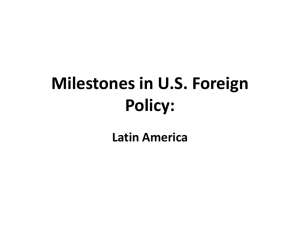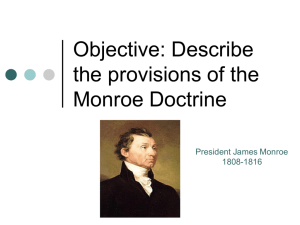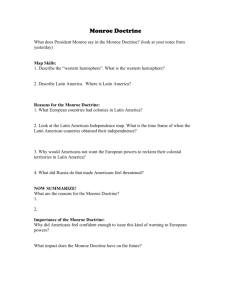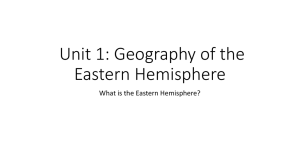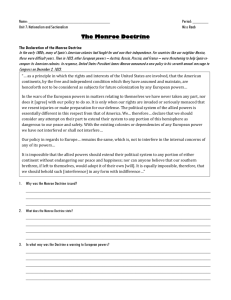Chapter 28 Roosevelt Corollary to the Monroe Doctrine Theodore
advertisement
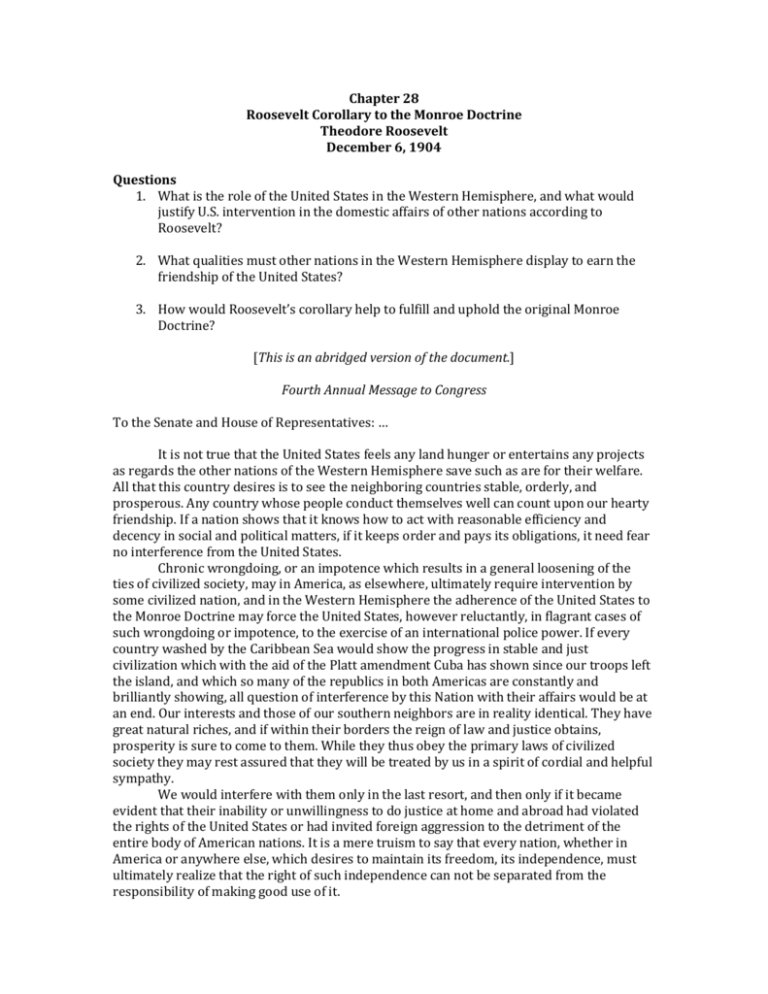
Chapter 28 Roosevelt Corollary to the Monroe Doctrine Theodore Roosevelt December 6, 1904 Questions 1. What is the role of the United States in the Western Hemisphere, and what would justify U.S. intervention in the domestic affairs of other nations according to Roosevelt? 2. What qualities must other nations in the Western Hemisphere display to earn the friendship of the United States? 3. How would Roosevelt’s corollary help to fulfill and uphold the original Monroe Doctrine? [This is an abridged version of the document.] Fourth Annual Message to Congress To the Senate and House of Representatives: … It is not true that the United States feels any land hunger or entertains any projects as regards the other nations of the Western Hemisphere save such as are for their welfare. All that this country desires is to see the neighboring countries stable, orderly, and prosperous. Any country whose people conduct themselves well can count upon our hearty friendship. If a nation shows that it knows how to act with reasonable efficiency and decency in social and political matters, if it keeps order and pays its obligations, it need fear no interference from the United States. Chronic wrongdoing, or an impotence which results in a general loosening of the ties of civilized society, may in America, as elsewhere, ultimately require intervention by some civilized nation, and in the Western Hemisphere the adherence of the United States to the Monroe Doctrine may force the United States, however reluctantly, in flagrant cases of such wrongdoing or impotence, to the exercise of an international police power. If every country washed by the Caribbean Sea would show the progress in stable and just civilization which with the aid of the Platt amendment Cuba has shown since our troops left the island, and which so many of the republics in both Americas are constantly and brilliantly showing, all question of interference by this Nation with their affairs would be at an end. Our interests and those of our southern neighbors are in reality identical. They have great natural riches, and if within their borders the reign of law and justice obtains, prosperity is sure to come to them. While they thus obey the primary laws of civilized society they may rest assured that they will be treated by us in a spirit of cordial and helpful sympathy. We would interfere with them only in the last resort, and then only if it became evident that their inability or unwillingness to do justice at home and abroad had violated the rights of the United States or had invited foreign aggression to the detriment of the entire body of American nations. It is a mere truism to say that every nation, whether in America or anywhere else, which desires to maintain its freedom, its independence, must ultimately realize that the right of such independence can not be separated from the responsibility of making good use of it.
